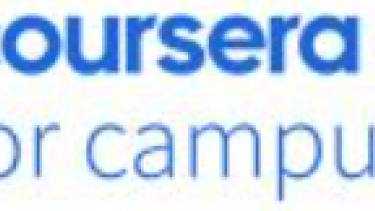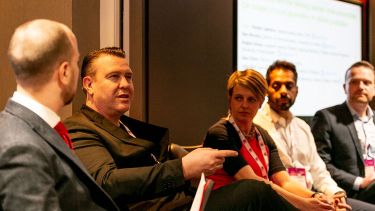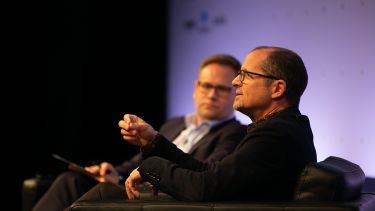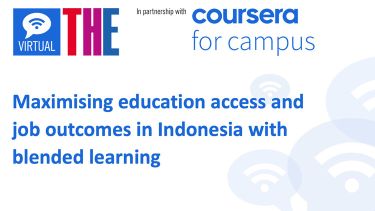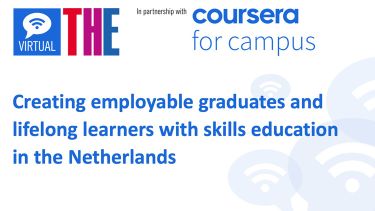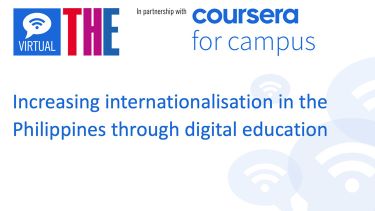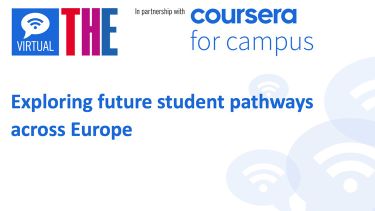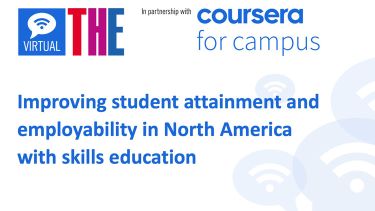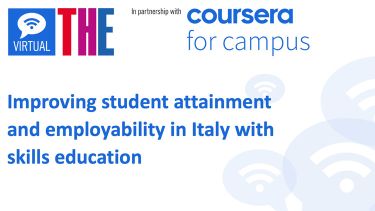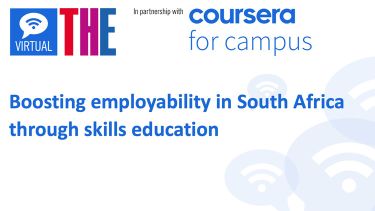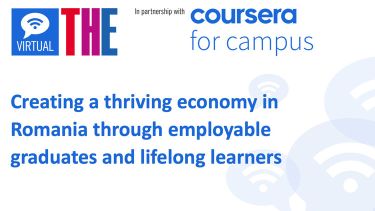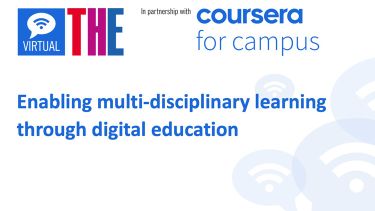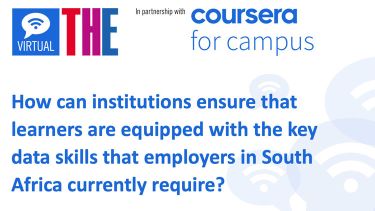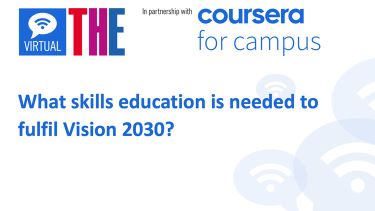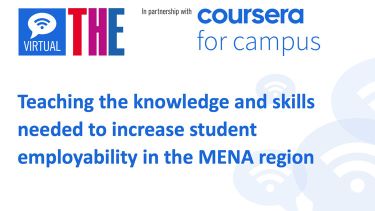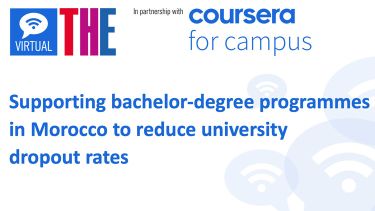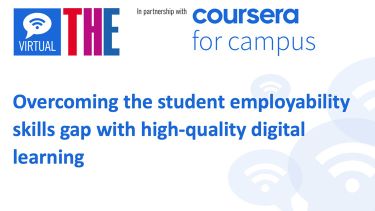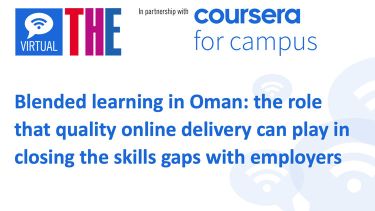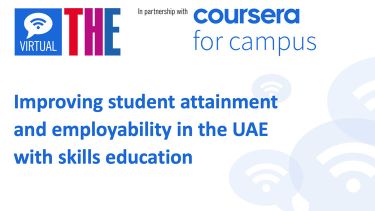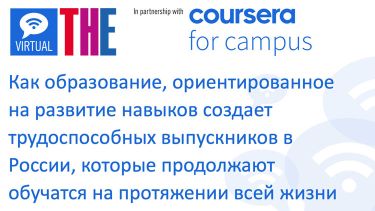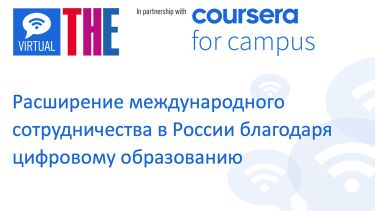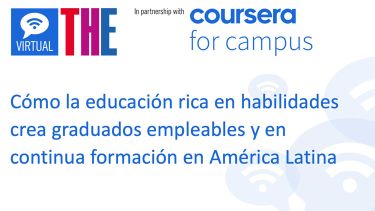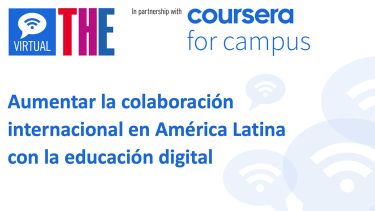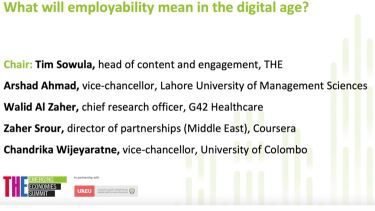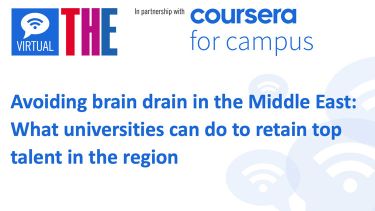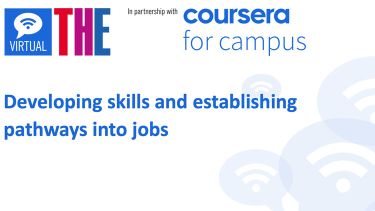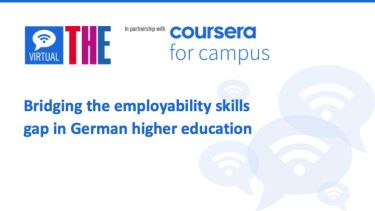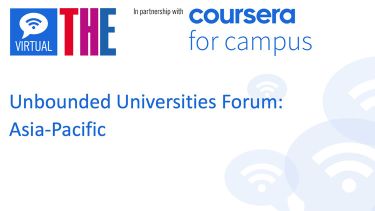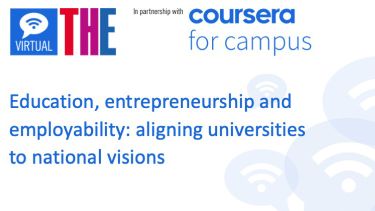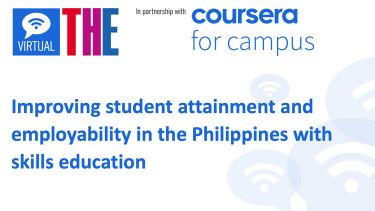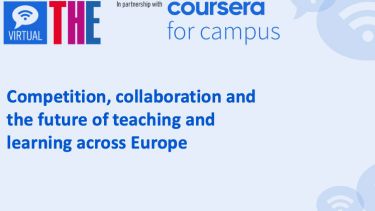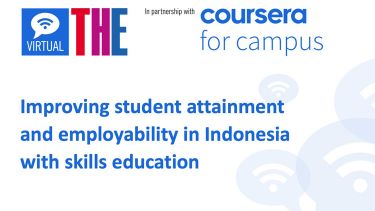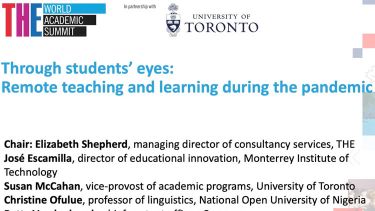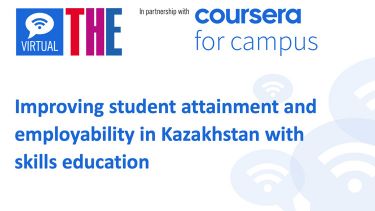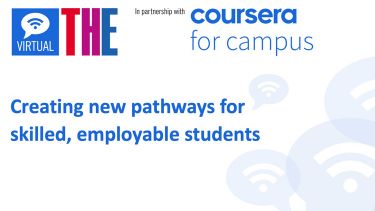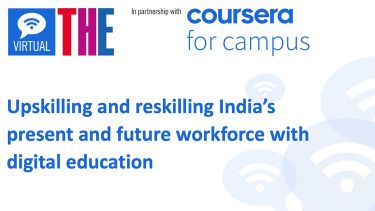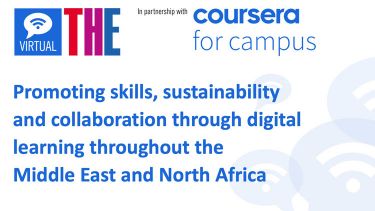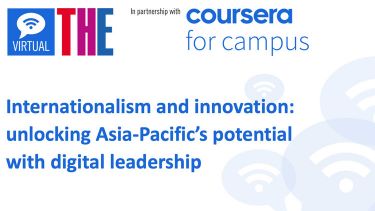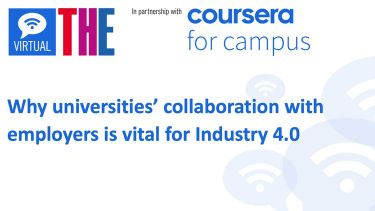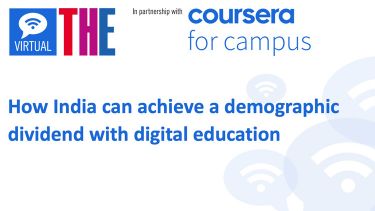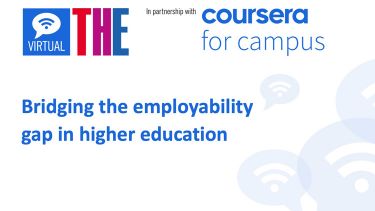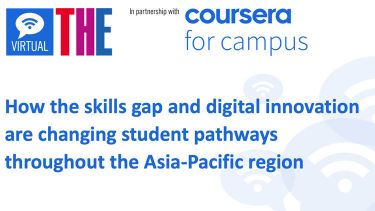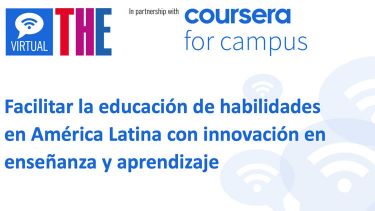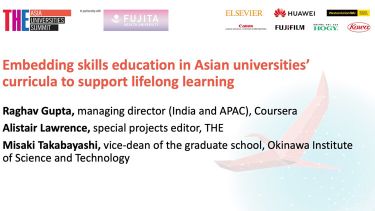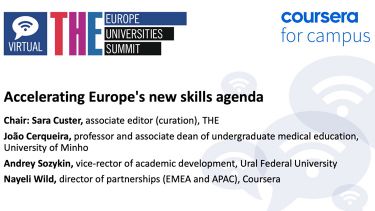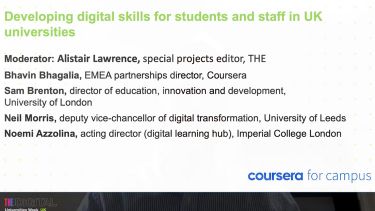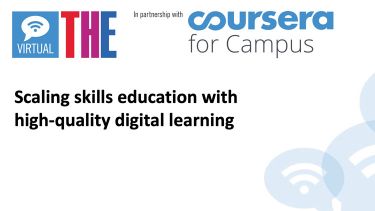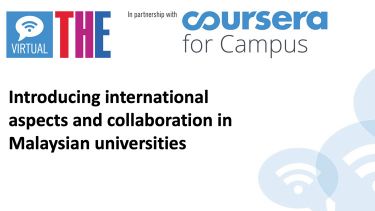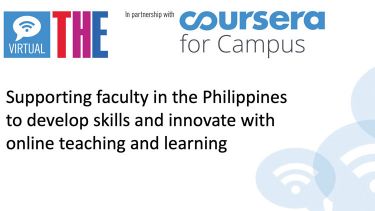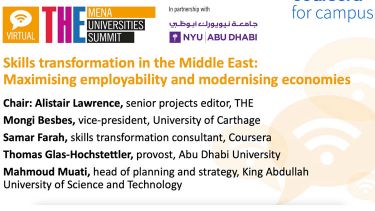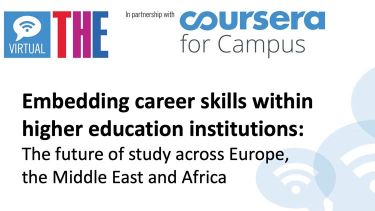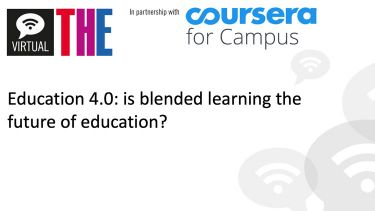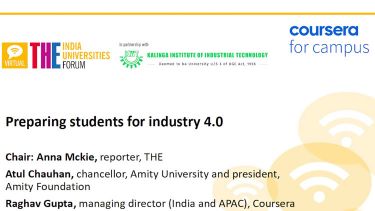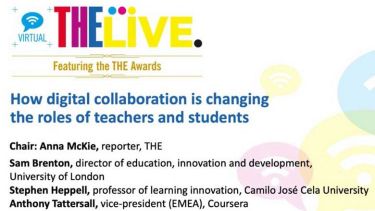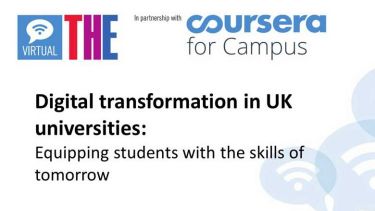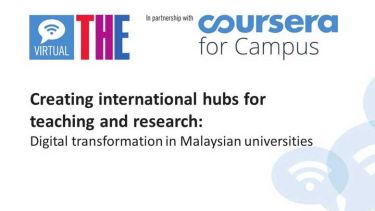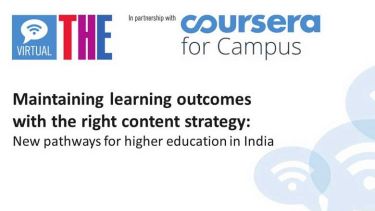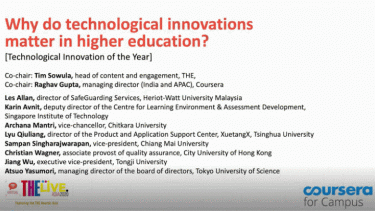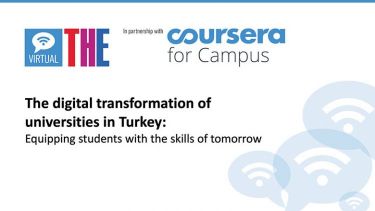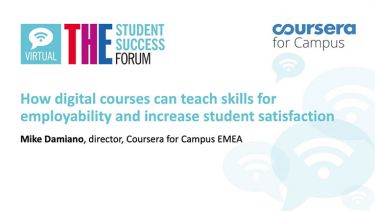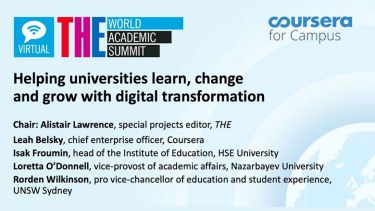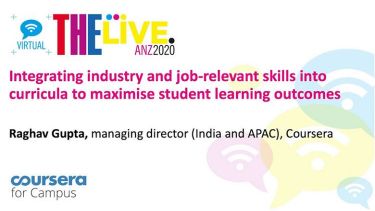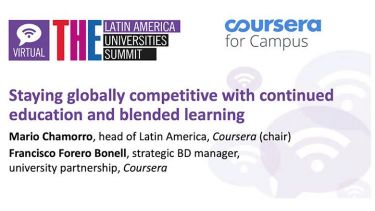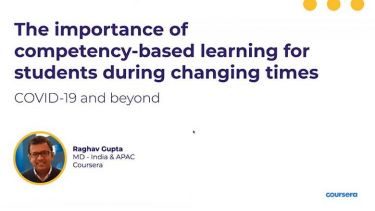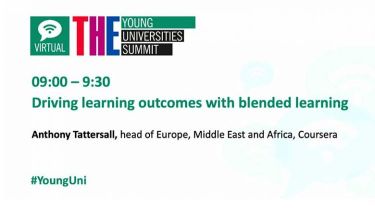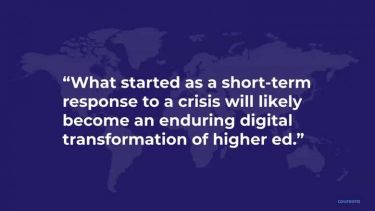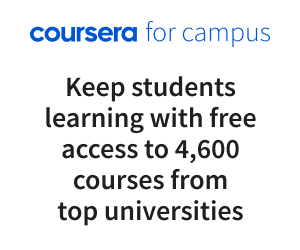A roundtable hosted by Times Higher Education, with digital course provider Coursera, examined how the pandemic is driving digital transformation at institutions in the Philippines
In the months since the pandemic turned higher education upside down, institutions around the globe have faced many challenges, with digital transformation at the forefront, alongside the need to prepare students for a fast-changing world of work. Times Higher Education’s panel brought together a group of academics from the Philippines to discuss the higher education sector’s delivery of digital transformation. The panel described how faculty had risen to the challenge of moving lecture content online, as well as arranging campuses for physical distancing and staggering student attendance to cope with the slower pace of curriculum delivery.
While institutions were aware of the need to look to the future, the present challenges were the priority. For some institutions, these demands were familiar. Mapúa University has offered online courses since 2012. The university’s president, Reynaldo B. Vea, explained how this head start had meant content could be moved online quickly and efficiently earlier this year.
Other institutions had to act fast to adapt; Ateneo de Manila University designed and launched its Adaptive Design for Learning Programme for online teaching, migrating processes to its cloud system and launching an online hub for student services, including the digitalisation of library material on request.
The attendees agreed that courses needing hands-on teaching were a particular challenge. Professor Raymond Tan of De La Salle University identified issues with medical courses that require lab work, and the implication this would have on maintaining the medical student pipeline. He also noted the difficulty for courses that involve industry placements. He questioned whether videos were a reasonable substitute for labs: “Not having hands-on could be problematic.” Mapúa has subscribed to providers of simulated labs, said Reynaldo B. Vea. “These are not ideal, but they are better than nothing.”
Eklavya Bhave, Coursera’s regional director, outlined what Coursera was doing to help institutions cope in a world where 1.6 billion students had seen their education disrupted. Although the Philippines has tight governmental curriculum regulations, there are signs internationally of flexibility, with a 42 per cent increase in regulatory acceptance of online credits. Meanwhile, workplaces are demanding that graduates have the digital skills they need to hit the ground running. “How do we make sure [students] are well supported for the changes in the future?” Bhave asked.
With Coursera having made its full catalogue available for free between March and July, 3,700 institutions and over 2.4 million students came on board, 70 per cent of whom accessed content via the mobile platform – a boon in Asia. Working with over 150 university partners and more than 50 industry partners, the Coursera for Campus platform allows institutions to integrate resources with their own content. “Our subject domains are updated very quickly with almost 50 courses per month, from our top university partners,” Bhave said.
Bhave acknowledged that virtual access to laboratory environments remained out of reach. Still, Coursera was developing its Guided Project virtual lab simulation, which allows students to practise their lab skills in real time. Such tools, he said, would go some way towards building knowledge for the future.
“Most Asian countries are looking to build a global presence, but there is much work to be done in terms of skills,” Bhave said. With the top in-demand skills in the realms of data science, business and computer science, “that is how most universities are leveraging the platform, by integrating our courses into their programmes”. For the future, Coursera is working with Zoom to integrate faculty sessions, “creating a blended learning model going forward”.
Looking ahead, Alistair Lawrence, THE’s special projects editor, asked whether, with the pandemic still present, it was too early for comprehensive future planning. While the challenges remain huge, all attendees indicated that the demand for new skills and programmes was very much on their minds. The pandemic has utterly changed the sector, with online teaching set to become a permanent fixture, despite past hesitance. “The pandemic has forced us to experiment…when things normalise, we will try to retain things that are useful for the future,” said Professor Tan.
The panel
Alistair Lawrence, special projects editor, Times Higher Education (chair)
Eklavya Bhave, regional director, Coursera
Maria Luz Vilches, vice-president, Ateneo de Manila University
Meyliana, vice-rector of global employability and entrepreneurship, BINUS University
Merlin Teodosia Suarez, professor, De La Salle University
Raymond Tan, vice-chancellor for research and innovation, De La Salle University
Reynaldo B. Vea, president and chief executive officer, Mapúa University
Philip Muncada, vice-president for academic affairs, University of San Carlos
Diah Wihardini, director of BINUS Global, BINUS University
Bonifacio T. Doma, executive vice-president, Mapúa University
Cheryl Peralta, vice-rector for academic affairs, University of Santo Tomas
Watch the roundtable on-demand above or on the THE Connect YouTube channel.


